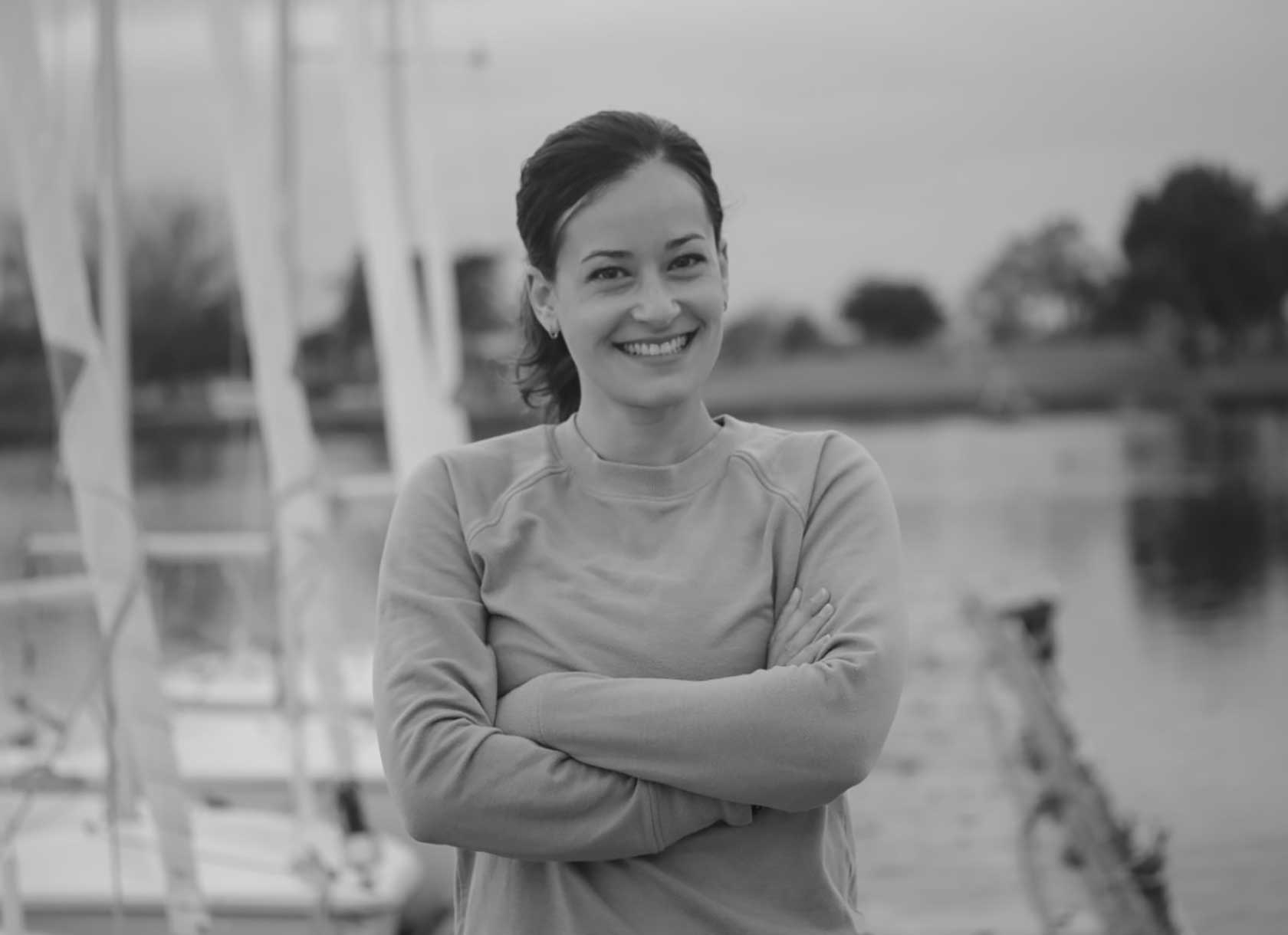
As a child, Rebecca Zabinsky ’09 had a love for nature, a curiosity for how the world works, and an admiration of scientists.
She tapped into her interests as early as elementary school and remembers a project where she grew frogs from eggs and then released them into a stream in Seattle, Washington, where she was raised. “That was a great example of learning about the biology of development and also learning about ecosystems,” Zabinsky says. “I learned how breeding tadpoles and releasing them can have a large societal impact.”
The daughter of college professors, Zabinsky was taught at an early age to value education. When it was time to venture away to college, she visited The Claremont Colleges and says she decided on Scripps because the campus aligned with how captivated she was with nature. While working on her bachelor’s degree in molecular biology, Zabinsky took three semesters of Chinese, neuroscience classes, and traditional Chinese medicine classes.
She also spent two years working in Associate Dean of Faculty and Professor of Biology Jennifer Armstrong’s lab in the W.M. Keck Science Department, where she studied fruit flies. There, she discovered how the protein CHD1 works with other proteins to regulate DNA packaging, transcription, and fruit fly wing development. “One time, when I wasn’t sure what was happening with an experiment in Dr. Armstrong’s lab at Keck, she told me to ‘be a DNA detective!’” Zabinsky says, adding that she still uses that piece of advice in her work today.
Zabinsky earned her PhD in molecular, cellular, and developmental biology from the University of Colorado Boulder. In 2016, she began her postdoctoral fellowship at Stanford University School of Medicine and began researching how baker’s yeast responds to various stressors. And, as part of a research team funded by the American Cancer Society, Zabinsky discovered that creating a mutation burden in strains could mimic highly mutating cancers.
“In this research, we used a genetic model organism that is well known, but we created a new model to learn something that we hope can be applied to treating cancer in the future,” she explains.
When the pandemic lockdowns went into effect, her building at Stanford was shut down for two months and, like most of the world, Zabinsky’s everyday routines changed.
“I’m a research scientist and that was rough. I wasn’t prepared to work from home,” Zabinsky says. “At first I turned to my yoga practice and some days I did more yoga than science. I worked with a friend to create an online platform for others to share exercise and yoga.”
Eventually, Zabinsky discovered ways she could still do science at home.
“I learned some computational skills during that time and I looked back into some old data sets and found some things that I would not have had time to look for otherwise. And I’m using those skills in my new job now,” she says.
Today, she is a senior scientist at The EVERY Company, an organization whose mission is to create a sustainable, ethical approach to making protein.
“The idea is to make vegan protein to replace animal products, supporting a sustainable future,” she says.
After more than 10 years as a professional scientist, Zabinsky still loves making new discoveries.
“Sometimes, looking under the microscope, I may have spent years planning out this experiment and then when I get to see the results, usually I am the first one to know what the answer is. It’s exciting to see whether that hypothesis was correct, or whether something unexpected happened,” Zabinsky says.

